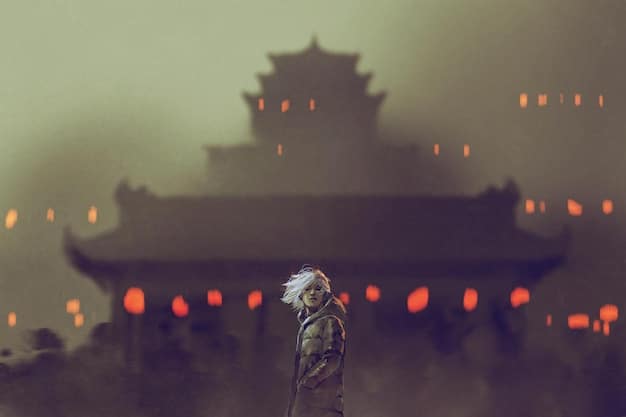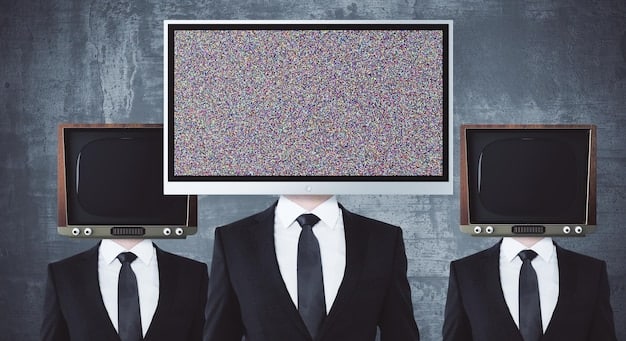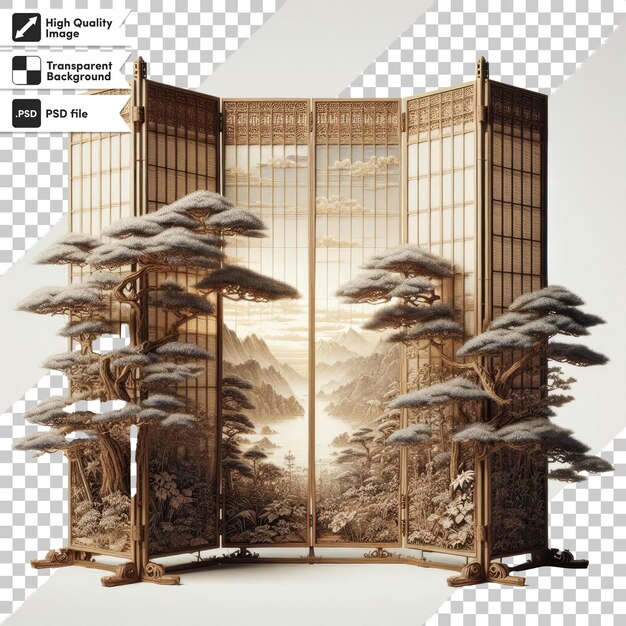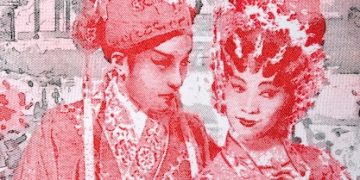The Impact of Censorship on Chinese Drama Storytelling: What You Need to Know

Advertisements
The Impact of Censorship on Chinese Drama Storytelling: What You Need to Know reveals how government regulations shape narratives, limit creative freedom, and influence the themes and content available to viewers both within China and internationally.
The world of Chinese dramas is vibrant, captivating audiences with tales of love, history, and adventure. But behind the beautiful costumes and intricate plots lies a significant influence: censorship. Understanding the impact of censorship on Chinese drama storytelling: what you need to know is crucial for appreciating the nuances and limitations within this popular entertainment form.
Anúncios
Understanding Censorship in Chinese Drama
Censorship plays a vital role in shaping the landscape of Chinese drama. It is not merely about deleting scenes; it profoundly affects the narratives, character development, and thematic explorations within these dramas. Understanding the scope and mechanism of this censorship allows us to see the stories through a new lens.
The Role of SAPPRFT
The State Administration of Press, Publication, Radio, Film and Television (SAPPRFT) is the primary regulatory body overseeing media content in Mainland China. This organization sets strict guidelines concerning what can and cannot be portrayed on screen, influencing everything from historical accuracy to moral messaging.
Anúncios
- Content that challenges the authority of the government is regularly removed or avoided.
- Certain historical inaccuracies or interpretations are forbidden.
- Moral messaging that does not align with socialist core values is restricted.

Commonly Censored Themes
Certain themes are deemed sensitive and therefore frequently censored in Chinese dramas. These restrictions can significantly alter the storytelling process, often leading to creative compromises.
- Political dissent or criticism of the government
- Overly violent or graphic content
- Portrayals of homosexuality or other non-traditional relationships
- Supernatural or superstitious elements deemed to be harmful to socialist values.
In conclusion, censorship fundamentally guides the narrative development and thematic choices within Chinese dramas, necessitating viewers comprehend these constraints when engaging with the content.
Historical Dramas: Navigating the Past
Historical dramas are immensely popular, providing a window into China’s rich past. However, these portrayals are subject to intense scrutiny to ensure they align with the government’s approved version of history. This impacts how historical events, figures, and cultural practices are depicted.
Accuracy vs. Ideology
Historical accuracy often takes a back seat to ideological alignment. Dramas must positively portray certain historical figures and events while downplaying or omitting controversial aspects that might reflect poorly on the Chinese Communist Party.
Creative liberties are often curtailed in favor of presenting a sanitized and politically correct version of the past.
This ideological control can sometimes result in narratives that feel inauthentic or disconnected from the historical reality.
Altering Storylines
To comply with censorship requirements, drama writers may alter storylines or character arcs. This can involve changing the motivations of characters, rewriting historical events, or adding moral lessons that support socialist values.
For example, controversial historical figures may be reimagined as heroes, or rebellions may be depicted as harmful disruptions to social order.
These alterations impact audience understanding and appreciation and affect the depth and integrity of historical narratives.

In summary, censorship significantly shapes the portrayal of historical events and figures in Chinese dramas, often prioritizing ideological alignment over historical accuracy, thus influencing collective understanding of the past.
Modern Dramas: Reflecting Contemporary Values
Modern dramas, while set in the present day, are not immune to censorship. These dramas must carefully navigate contemporary social issues while promoting government-approved values and ideals. This can affect how realistic and relatable these stories can be.
Portrayal of Social Issues
Sensitive social issues, such as corruption, wealth inequality, and social injustice, often need to be handled with caution. Dramas may touch upon these issues but frequently avoid critical or overly negative portrayals.
Promoting Positive Role Models
Modern dramas are often used as a platform to promote positive role models and behaviors that align with socialist values. Characters are frequently shown overcoming challenges through hard work, resilience, and adherence to governmental principles.
This emphasis on positive role models can sometimes come at the expense of realistic character development and nuanced storytelling.
In conclusion, modern Chinese dramas are carefully constructed to reflect and promote government-approved values while addressing social issues with caution, potentially impacting the level of realism.
Impact on Creative Freedom
Censorship inherently limits creative freedom, forcing writers, directors, and actors to navigate a complex web of restrictions. This can stifle innovation and lead to a homogenization of content. The limitations can affect the quality and variety of dramas available to viewers.
Compromises and Adaptations
Producers and writers often make compromises and adaptations to their original vision to secure approval from censors. This can involve altering storylines, cutting scenes, or changing dialogue to conform to regulatory guidelines.
These compromises and adaptations represent a loss of creative control and can result in dramas that feel less authentic or impactful.
Self-Censorship
To avoid potential conflicts with censors, many creators engage in self-censorship. This involves preemptively avoiding themes or topics that are likely to be deemed sensitive or controversial.
Self-censorship can stifle creativity and lead to a lack of diversity in storytelling, as creators opt for safer, more predictable narratives.
Essentially, censorship forces a culture of compromise and self-regulation that ultimately reduces creative expression and authentic storytelling in Chinese dramas.
International Reception and Influence
The impact of censorship extends beyond domestic audiences, affecting how Chinese dramas are received and perceived internationally. The sanitized content often caters to a narrow range of tastes and values, influencing the global appeal and marketability of these shows.
Limited Global Appeal
Censorship can limit the global appeal of Chinese dramas, as international audiences may find the content to be too sanitized, propagandistic, or lacking in originality.
Many viewers from other countries prefer dramas that tackle complex social issues with greater nuance and depth, which can be challenging to achieve under strict censorship guidelines.
Soft Power and Cultural Diplomacy
Despite its limitations, the Chinese government often uses dramas as a form of soft power and cultural diplomacy, promoting its values and culture to international audiences.
These dramas may not always be critically acclaimed, but they serve as a tool for cultural exchange and can shape perceptions of China on a global scale.
Ultimately, censorship influences how they are received, affecting their potential to engage global audiences and serve as effective instruments of cultural diplomacy.
The Future of Chinese Drama Storytelling
The future of Chinese drama storytelling hinges on the evolving relationship between creative freedom and governmental oversight. As technology advances and audience expectations change, the industry faces the challenge of balancing artistic expression with regulatory constraints.
Potential for Change
There is potential for change as younger generations of creators push the boundaries of traditional storytelling and explore new ways to express themselves within the confines of censorship.
Furthermore, the rise of online streaming platforms and international co-productions could provide more opportunities for creative freedom and diverse narratives.
Balancing Act
The industry must continue to navigate the balancing act between adhering to censorship guidelines and meeting the demands of increasingly sophisticated audiences.
The ability to find this balance will determine the long-term viability and global appeal of Chinese dramas.
In conclusion, the future of Chinese drama storytelling depends on the industry’s capacity to navigate censorship creatively, adapt to changing audience expectations, and find opportunities for more diverse and authentic narratives.
| Key Point | Brief Description |
|---|---|
| 🎬 SAPPRFT’s Role | Regulates content, ensuring alignment with government values. |
| 🎭 Historical Dramas | Accuracy often compromised for ideological alignment. |
| 🌟 Modern Dramas | Reflect contemporary values carefully, avoiding sensitive issues. |
| 🌎 International Appeal | Censorship limits global appeal. |
Frequently Asked Questions
▼
SAPPRFT, the State Administration of Press, Publication, Radio, Film and Television, is the primary regulatory body in China responsible for overseeing and censoring media content, including dramas.
▼
Censorship in historical dramas often prioritizes ideological alignment over historical accuracy, leading to altered storylines and sanitized portrayals of events and figures.
▼
Commonly censored themes include political dissent, graphic violence, LGBTQ+ content, and supernatural elements deemed harmful to socialist values by the government.
▼
Self-censorship can stifle creativity by leading creators to avoid sensitive or controversial topics, resulting in less diverse and authentic storytelling within Chinese dramas.
▼
Yes, censorship can limit the global appeal of Chinese dramas, as international audiences may find the sanitized content less engaging than dramas that tackle complex issues with greater nuance.
Conclusion
Understanding the impact of censorship on Chinese drama storytelling: what you need to know, is essential for fully appreciating these cultural productions. Though limitations exist, the industry continues to evolve, seeking innovative methods to connect with audiences both domestically and internationally.





